The one that most immediately comes to mind? Hitwoman Nadia Stafford from Kelley Armstrong’s wonderful Exit Strategy. Book two, Made to be Broken, came out this month (discussed by Renee here). I'm so there: this is a series I am definitely into.
Exit Strategy: overlooked?
Kelley Armstrong wrote one of my all-time three favorite books, Bitten. She’s fantastic writer. While Exit Strategy was a definite deviation for her, had all the Armstrong hallmarks--tight plotting, great details and well-drawn characters, right down to their speech patterns.
 I really loved Exit Strategy, but I know some people didn't, and the reasons for this vary. First, it’s slightly psychological (which I actually really love in a book) but because of this it could feel slow to some. Second, it doesn’t have a romance at its core (though there is the potential for one). And third, the heroine kills for money.
I really loved Exit Strategy, but I know some people didn't, and the reasons for this vary. First, it’s slightly psychological (which I actually really love in a book) but because of this it could feel slow to some. Second, it doesn’t have a romance at its core (though there is the potential for one). And third, the heroine kills for money.I was totally fine with this, in fact, I loved this heroine – Nadia has a code of honor about the (very few) jobs she takes, and here, she's trying to find a killer. I thought this hitwoman bit made Nadia really interesting--and the world was hugely interesting, full of all kinds of cool hitwoman details, but I know her profession bugged potential readers, and I think about that a lot.
It didn’t bug me in the very same way Dexter being a killer doesn’t bug me in the show Dexter. I think Dexter would be a scary person in real life, but I’m sure interested in stories about him. I'm interested in Nadia, too!

Do heroines have to meet a higher standard of morality?
I think a lot of readers of romance and related genres, (including me) often forgive things that would be awful in real life, from questionable varieties of seduction to vigilante justice.
Do heroines in romance and its subgenres have to be more moral than the heroes?
Is this a human thing? If the heroine is paranormal, can she get away with more?
Is it possible that this is a romance genre thing, and people who came to romance (like me) via urban fantasy, thrillers or literary fiction have a higher tolerance for amorality in a heroine?
Remember how LKH made Anita Blake go to church all the time and have all these moral qualms about things (at first). Not that I have a problem with characters going to church, but I remember feeling it was out of character for Anita Blake, like an overlay to make her behavior more palatable.
Do you ever feel like that with heroines, where they seem like they’re made to be more upstanding or feel more qualms about their badass ways than a hero might?
Do you think authors ever push up the moral goodness of heroines to conform to an unwritten genre rule?
If you’re an author, do you feel like you have to do that?
What, in your mind, is the genre rule?
Signed,
Wondering in Minneapolis























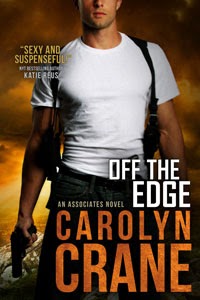


















.png)



































































































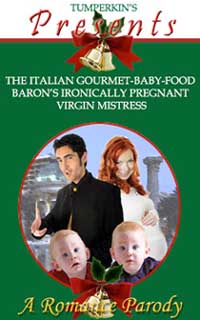
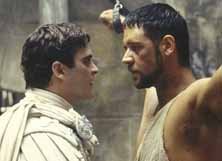

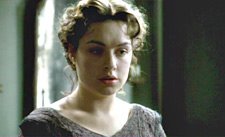
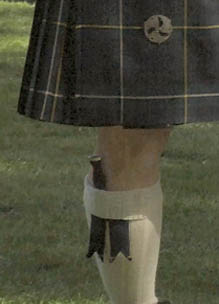

13 comments:
Awesome topic, and one I wrestled with when reading MtbB. And, it's this tension that Kelley Armstrong creates, that I think makes the Nadia Stafford series so good! Because, she (Nadia) wrestles with it (her ethics, the lines she's willing/not willing to cross, etc), and the reader is beside her wrestling with them, too. This, makes her likeable and sympathetic despite what she does for a living.
And yes, for me while she can kick ass, it's different when it's paranormal. While it's all fiction and fantasy, my suspension of belief is different for paranormal or uf. I expect verisimilitude if it's a contemporary novel, and this means ethics are what they are in the "real world."
I'm not sure if I have a different set of moral expectations for a hero as opposed to a heroine. I think so, but I have to give that some more thought and think of actual books that I'd apply that to.
With Anita Blake, I bought the religiosity that she had at the beginning of the series. That might be because she was raised with a Mexican grandma, and, believe me, religion is pounded into you (at least my Mexican grandma pounded it in to me. lol) I think with Anita, it was less, making her "acceptable" and more a graphic illustration of how much she changes over the course of the series, due to everything she goes thru and does.
Phew! Sorry to be so long winded. You really got me thinking!
Is the morality bar set higher for heroines?
Oh, yes. Especially the I-revel-in-my-sexuality morality bar. Or the I-love-the-smell-of-the-blood-I've-kicked-out-of-the-asshole-I-just-killed morality bar.
I do think heroines have to have some moral center. They can be wicked, they can be a bit on the evil side ... but there are lines they shouldn't cross. Rape, murder of innocents, that kind of thing.
However, IMO, the same should go for heroes -- paranormal or not.
How about human heroines?
Thank god I don't write many of them, because I think it's even higher.
Interestong post CJ.
I like a certain moral ambiguity in heroines as that is more reflective of people. No-one has moral absolutes - even those who go to church can argue about many issues of morality - as we all pretty much see life as shades of grey, rather than black or white. For it to work, though, there must be some reason as to why the heroine thinks or acts as she does otherwise the reader's sympathy may be lost.
One character type I really hate is the perfect 'Mary Sue' types that always behave perfectly and take the moral high ground. Pah! No-one is like that so how can I identify with such a character?!
This is why I really like UF heroines. They are, in some ways, an exaggeration, but have many traits that are easy to identify with.
or even, interesting post!
Why do I never spot the typos until after I post? :(
Renee - oh, AB had a Mexican grandmother! You are so smart. I forgot about that, and that does sort of make sense then. I really need to get MTBB. I love when heroines wrestle with questions, especially if there is no good answer. I'm not interested when they wrestle with questions where the answer is just obvious.
MJ: I agree, a reader wants the heroine to have some moral center. And the sexuality bar, wow, that's definitely high. But since people enjoy reading about sex at the same time, you get the workarounds, like Riley Jensen in Keri Arthur's series: she loves/is driven to have sex at certain times of the month...A LOT....due to genetics. Or the situations where heroines are forced out of their usual moral cages - she HAS to have sex with this guy. (Devil in Winter, etc) but they don't typically revel in their sexuality the way heroes can.
That's interesting with the I-love-the-smell-of-blood heroine. I wonder if there is more temptation to back it with a character-history reason than when a male is like that.
Jenre: I agree about the moral absolutes, for sure. And that is a good point, if it goes back to character, that's just so much more satisfying. Though I wonder, as I noted above, if kickassingness has to be more rooted in character and history for a heroine, whereas heroes can just "be like that." I need to think about this, though. it might not be accurate. I might be blathering now. No, wittering!
Interesting questions. I ran into this with the heroine in my historical Retreat From Love. She's had sex with, gasp, four men in her entire 26 years, one of which was her dead fiance, and I've had reviews say she's just a 'ho. Excuse me? She admits that she likes sex, and after enjoying it with her fiance, she missed it. So in ten years she had sex with 3 men. Yep, total 'ho.
The moral bar is much, much, higher for heroines in romance. And I'm constantly butting my head against it because, by God, my heroines like sex and they want more of it, for no other reason than they just flat out enjoy it. Take that, moral majority.
I've written a couple of books where there was some guilt and moral vacillation by the heroines over the sex, but I like writing sensual heroines with no moral ambiguities about it better. It's much more fun. I want my conflict somewhere else besides the bed.
I feel the same way about books I read. If heroines are going to have sex and kick some ass until the blood runs, then by God they better enjoy it and do it right. Nothing makes me want to throw a book like a heroine whining because the sex was sooooo good, or she really shouldn't have killed that evil monster. Anita Blake started getting on my nerves for that very reason. I actually liked the whole church thing in the early books because the point was that people accused her of being one of the monsters, but the reason she was so tough was because she had an unshakable belief in God and good and evil. That worked for me.
Okay, I'm going to stop writing your ears off now, lol. Obviously you hit one of my triggers here.
I think as long as the character keeps it real (AKA the writer doesn't try too hard to justify it) I'm game. I liked when Anita struggled with her inner demons and tried to go to church to make up for the all the killing she had to do. It made a real struggle. When she quit and gave into the monsters it actually baffled me.
As far as Nadia I couldn't get into the story b/c Ms. Armstrong is really good about describing EVERYTHING around the character making the story move too slowly for me. However, the reason I even picked it up was for the assian part. I like that they have their own code. Even when its a code I don't agree with (edward in Anita) or whatever I still like characters that do what they do b/c they have too or like too but still have that code.
Hell Dexter even has a code and I think that in itself is what makes him interesting.
Great post!
CJ, you will love MtbB, because KA takes Nadia's struggle to the next level: who is she to judge who's a "bad" guy? is she responsible when innocent people die because she does/doesn't kill a hit? can she accept Jack and his (lack of) moral code re: his hits? That is what makes the book a stand out in its genre. And, yes! There is no "right" answer--they are all judgement calls.
Yeah, the AB thing made an impression on me (for obvious reasons.) She also has this whole thing in the first book about not really feeling like she fits in with the rest of her family, feeling and looking different.
Oh great post!
I sort of feel there are two issues here - mores and morality.
When it comes to morality (rape, torture etc.) I don't think - for me - that heroes and heroines are in a different position. I think it's more a question of what the individual reader can tolerate.
For example, I was fine with Kresley Cole's valkyries doing some serious butchering - but they were killing evil hoarde vampires (albeit enjoying it very much). By contrast, I couldn't at all get into Jackie Kessler's Road to Hell and her heroine's fond reminisces about the sound of human screams and smell of burning flesh in the fiery pit of hell. The adoption of a smart, funny voice for said heroine wasn't enough to get me over that hurdle. I bet, however, there are plenty of readers who didn't mind that heroine.
When it comes to mores, especially sexual mores, it is undoubtedly the case that the bar is set higher for heroines than for heroes. Even in erotic romance, the heroes are very often the experienced teacher with the heroine the inexperienced willing pupil. More generally, heroines are often kinder, more compassionate etc. than the heroes. In fact, thinking about it, heroes in romance novels are often depicted as being quite lacking in good social behaviours.
Most interesting.
I quite often have the impression that the heroine needs to be better, meet higher standards than the hero. And I agree with Tumperkin and the point she makes about the difference between mores and morality.
I especially find the question "Do you think authors ever push up the moral goodness of heroines to conform to an unwritten genre rule?" interesting. I often get the feeling that certain characteristics (beyond moral goodness) are viewed favorable, sometimes so much so that when a character is lacking in these, or has characteristics that are viewed unfavorable/are undesired, I get the impression that the character is actually deemed not worthy of love. I see a difference here to statements that question why two characters ever fell in love with each other, why they are right for each other (although no matter how I try, I can't really put this difference into words).
Sorry for rambling (and getting a bit off-topic) with this. Really interesting post and questions.
Samantha: Wow, having sex with four guys in 26 years is pretty tame! Yes, you make a great point. I prefer my heroines to worry about other things besides ho-behavior, etc. Or to have that be the conflict. I want them to enjoy themselves, and worry more about more interesting things.
Sarai: Right, too much justification and it gets to be a snooze. It's quite the fine line! I was sort of glad when Anita stopped going to church. We're opposites on AB!
Renee: So true about AB. In a lot of ways, I felt like she was a sort of orphan.
Tumperkin: Right, I suppose it goes the to reader. This is really interesting about KC's valkyries vs. Kessler's heroine. I didn't read RTH but in her first book, her level of realism felt a lot higher, so I think that raises the bar.
"In fact, thinking about it, heroes in romance novels are often depicted as being quite lacking in good social behaviours."
Yes. And they're often rewarded for it, too!
Taja: That is a great point about certain morals/behaviors making them lovable or not, rather than it just being an issue of who fits with who. Or at least with the heroine. I can think of a lot of hugely flawed heroes that get loved, but not a lot of super flawed heroines. Though I just might not be awake yet!
Vera interesting topic! For me, I think (or hope) I hold my characters to the same standard. I don't like heroines with slutty tendencies, but I also don't like it in my heroes and as a rule, I'm more annoyed with heroes who sleep with anything that moves. Linda Howard's Kiss Me While I Sleep is one of my favorite books. Sure the heroine works for the CIA but she still kills people and then she goes rogue to kill some baddies. I don't read a lot of UF, but the few romantic suspenses I've read with women with 'questionable' professions don't bother me at all. I think it's awesome when a woman takes on something normally thought of as a male role.
p.s. I LOVE Dexter!
I really enjoyed Exit Strategy. Nadia was a refreshing change from the gleefully or grimly ass-kicking heroines I've read lately in urban fantasy. She's more matter-of-fact about it, perhaps in part because she's not in a paranormal setting. She doesn't have animal or vampire instincts urging her to rip! tear! maim! guzzle!, and she's not under attack from anything of that sort either.
However, that quality isn't entirely due to the "real-world" setting. It's something I like in some of Armstrong's paranormal books too. In Bitten, but Elena's animal side isn't an excuse for a bloodthirsty lack of moral center; rather, she comes to accept that facet of her human personality too.
Post a Comment